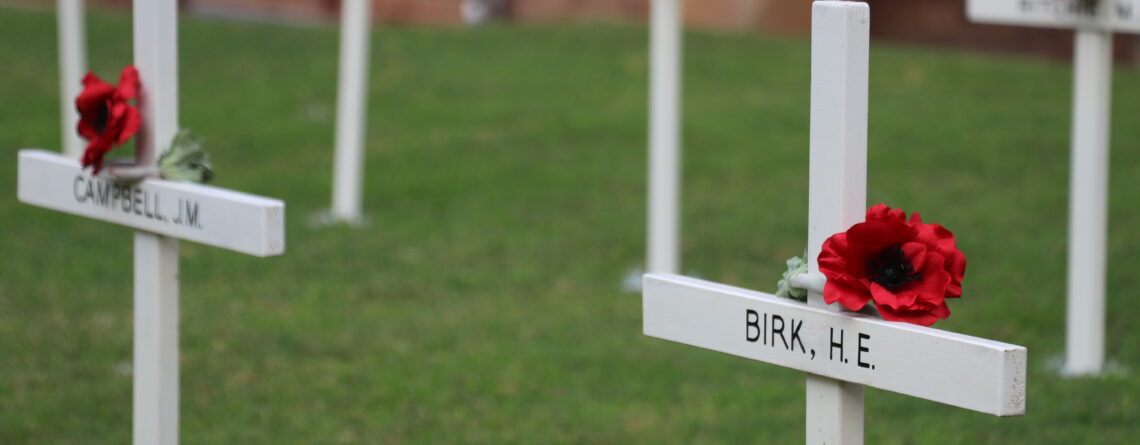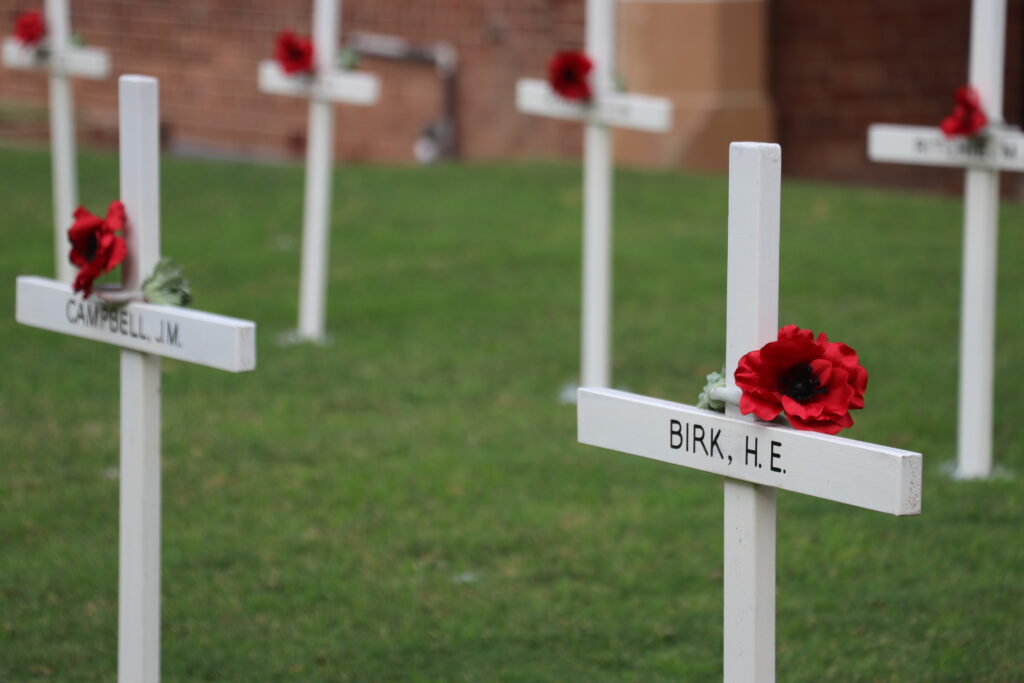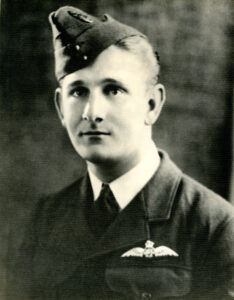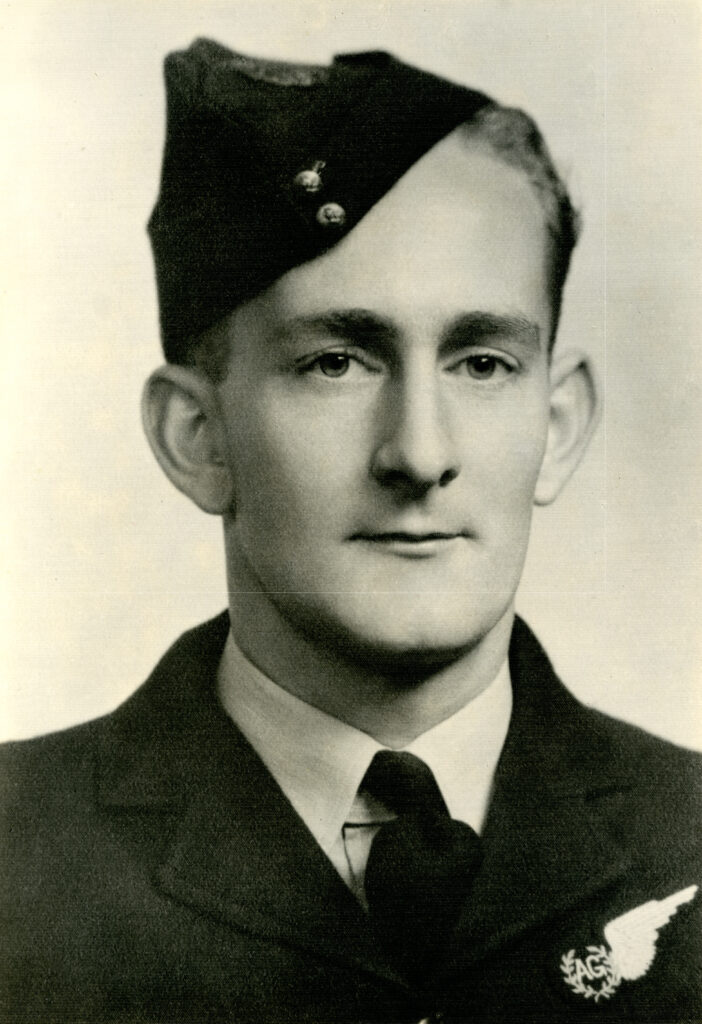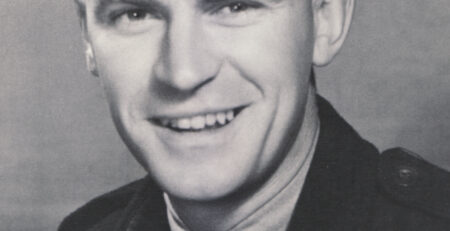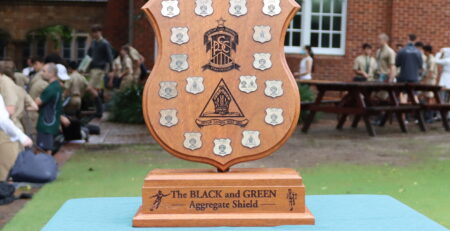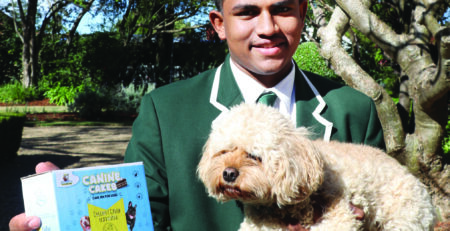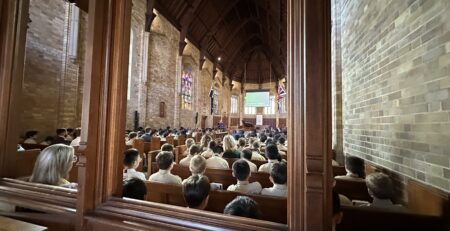Remembering the fallen
The 44 white wooden crosses that appear on the quad every Anzac Day – one for every Trinitarian to die in war – are real reminders of real people.
As Head Master Tim Bowden often reminds modern-day students, these old Trinitarians sat in the same classrooms and ran on the same fields.
But who were they?
Here we feature the heartbreaking story of two brothers, Hilary and Doric Birk, who died within weeks of each other in World War Two.
They were sons of the Rev George Birk, Rector of St James Anglican Church at Croydon, and his wife Elvy.
Hilary Eldred Birk played in Trinity’s second XV in 1938, gained his Leaving Certificate and studied accountancy before enlisting in the RAAF Reserve as an 18-year-old in 1940.
He was transferred for training to Canada, then England, gaining his pilot’s wings and being promoted to Sergeant.
He was soon taking part in night offensives over Europe with RAF Squadron 99, and his plane was shot down over Belgium.
The crew parachuted to safety but were captured and held prisoner, except for Birk, who remained undetected and found his way to a village where he secured civilian clothes and headed for the coast.
A little girl on a bike directed him to the local Catholic church where, dressed as a priest, he hid for two months, occasionally conducting “confession” for unsuspecting German officers.
With assistance from the local underground, he escaped to Madrid and was interned before being released back to the UK in June 1942.
British authorities were reluctant to let him fly again, believing if he was ever captured by the Germans he would be shot as an escaped prisoner. He appealed against that decision, successfully and fatefully.
He was reposted to the Middle East and took part in bombing raids in Libya and Crete.
Within a month he was shot down in the sea in July 1942, and he and his crew were killed.
Their bodies were recovered and laid to rest in the Christian cemetery of Giulianna, Benghazi.
Hilary Birk was mentioned in dispatches and included in the 1944 New Year honours list of King George VI.
At home, a memorial service conducted by the Archbishop of Sydney was attended by Trinity’s Head Master and School Captain.
Within weeks the Birk family would receive confirmation that their eldest son Doric had also been killed, in the skies over Europe.
Doric Phillip Birk received all of his schooling at Trinity between 1929 and 1936, playing in the 2nd XV, achieving modest Intermediate results and going on to study accountancy.
He enlisted as a 19-year-old in 1940, initially serving as a clerk in the recruitment office in Sydney.
He applied to join the air crew but although he was reported to be “a good type, respectful, keen, patriotic and determined,” he was unable to do radio theory and Morse code so he instead undertook training as an air gunner.
He sailed for the UK in 1943, and was posted to a RAF squadron near York, beginning operations in which he experienced the loneliness and vulnerability of the turret gunner, the biting cold they were subjected to and the realisation that the lives of the crew depended upon his vigilance.
As operations into Nazi-occupied territory became more frequent and hazardous, the chances of crew members surviving a full tour of 30 operations fell to just 40 per cent.
He served as a tail gunner on three successful operations, bombing heavily industrialised cities in the Battle of the Ruhr, which inflicted enormous damage as well as bringing significant losses.
He and the entire crew of his Lancaster bomber were killed on their fateful fourth operation, prey to a network of searchlights, anti-aircraft guns and interception boxes.
He was buried in the St Trond cemetery in Belgium, then reburied in the British war cemetery at Louvain, along with 32 other Australian airmen.
A memorial service for Doric and Hilary Birk was held at St Peter’s, Burwood East, in November 1943.
Source: Trinity Remembers, Robert Scott.
This article appeared in our December Edition of Trinity News.
Request a physical copy of Trinity News or view our online digital bookshelf.

